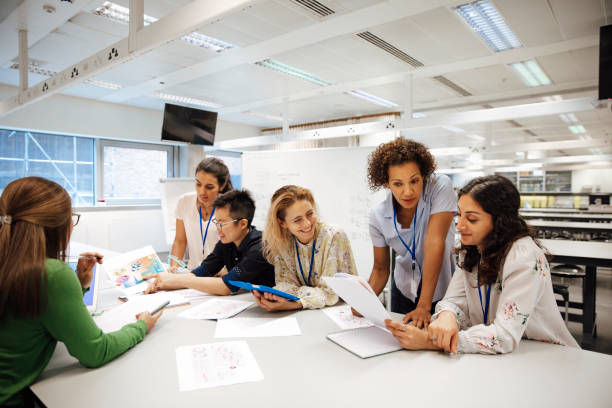What is Rehabilitation Science?
Rehabilitation science is a multidisciplinary field that deals with the prevention, diagnosis, treatment, and management of disabilities and disorders. It encompasses a wide range of healthcare professions, including physical therapy, occupational therapy, speech therapy, and prosthetics and orthotics. In this blog, we will explore the definition, history, nature, scope, benefits, and importance of rehabilitation science, as well as its impact on society.
Rehabilitation Science Meaning and Definitions
Rehabilitation science is defined as the process of helping individuals with physical or mental disabilities to restore their functional abilities and independence, enabling them to perform daily activities and participate fully in their communities. According to the World Health Organization (WHO), rehabilitation science is “a set of measures that assist individuals who have experienced loss of function, activity, or participation due to illness, injury, or other causes, to regain their optimal level of function, activity, and participation.”
History and Evolution of Rehabilitation Science
The origins of rehabilitation science can be traced back to ancient civilizations, where people used various techniques to help those with disabilities recover from injuries and illnesses. However, it was not until the early 20th century that rehabilitation science emerged as a distinct field of study. The development of rehabilitation science was influenced by several factors, including advances in medical technology, changes in societal attitudes towards disability, and the growing need for effective treatments for soldiers returning from war.
Nature and Features of Rehabilitation Science
Rehabilitation science is a diverse field that involves a team approach, comprising professionals from various disciplines such as medicine, nursing, psychology, social work, and engineering. The main features of rehabilitation science include:
Interdisciplinary approach: Rehabilitation science involves collaboration among healthcare professionals, family members, and the individual undergoing rehabilitation.
Patient-centered approach: Rehabilitation science focuses on the needs and goals of the individual, tailoring interventions to meet their unique requirements.
Evidence-based practice: Rehabilitation science draws upon research evidence to guide its practices and interventions.
Holistic approach: Rehabilitation science addresses the physical, emotional, cognitive, and social aspects of disability.
Scope of Rehabilitation Science in India
In India, rehabilitation science has gained significant attention in recent years due to the increasing prevalence of disabilities and the growing demand for quality rehabilitation services. The scope of rehabilitation science in India includes:
Physical medicine and rehabilitation: This branch deals with the prevention, diagnosis, and treatment of disorders related to the musculoskeletal, nervous, and cardiovascular systems.
Occupational therapy: This field helps individuals develop skills and abilities necessary for daily living and work through activities such as exercise, adaptive equipment, and ergonomic advice.
Speech therapy: This discipline focuses on the assessment, diagnosis, and treatment of communication and swallowing disorders.
Prosthetics and orthotics: This area involves the design, fabrication, and fitting of artificial limbs and supportive devices to enhance mobility and function.
Rehabilitation Science Career Opportunities
Rehabilitation science offers a wide range of career opportunities in various fields, including physical therapy, occupational therapy, speech therapy, and prosthetics and orthotics. These professionals can work in hospitals, clinics, rehabilitation centers, and non-governmental organizations.
Rehabilitation Science Salary Expectations
The rehabilitation science jobs salary in India can vary based on factors such as qualifications, experience, and location. However, on average, a physical therapist in India can earn around Rs. 30,000 to Rs. 50,000 per month, while an occupational therapist can earn around Rs. 25,000 to Rs. 40,000 per month. Speech therapists can earn around Rs. 20,000 to Rs. 35,000 per month, and prosthetists and orthotists can earn around Rs. 30,000 to Rs. 50,000 per month.
Masters in Rehabilitation Science Jobs
Pursuing a Master’s degree in rehabilitation science can open up opportunities for higher paying jobs and leadership roles in various organizations. Graduates often find rewarding careers as rehabilitation specialists, educators, and consultants, contributing to the advancement of healthcare practices. Masters in rehabilitation science salary can range from competitive entry-level positions to lucrative leadership roles, with earning potential influenced by factors such as experience, specialization, and the specific industry or healthcare setting.
Benefits of Studying Rehabilitation Science
Pursuing a career in rehabilitation science offers numerous benefits, including:
- Opportunity to make a positive impact: Rehabilitation scientists play a crucial role in improving the lives of individuals with disabilities, enhancing their quality of life, and promoting inclusion.
- Variety of specialties: Rehabilitation science encompasses multiple disciplines, allowing professionals to choose an area that aligns with their interests and skills.
- Flexibility in practice settings: Rehabilitation scientists can work in various settings, such as hospitals, clinics, community centers, schools, and private practices.
- Growing demand: With the rising incidence of disabilities and the aging population, the demand for skilled rehabilitation professionals is expected to increase.
Importance and Impact of Rehabilitation Science
Rehabilitation science plays a critical role in helping individuals with disabilities or injuries to regain their strength, independence, and quality of life. The importance and impact of rehabilitation science can be seen in several ways:
Improved Functional Outcomes: Rehabilitation science helps individuals with disabilities to regain their functional abilities, enabling them to perform daily tasks and activities more effectively.
Enhanced Quality of Life: Rehabilitation science improves the overall quality of life for individuals with disabilities by enabling them to participate fully in their communities and lead fulfilling lives.
Reduced Healthcare Costs: Rehabilitation science can reduce healthcare costs by reducing the need for expensive surgeries, hospitalizations, and long-term care.
Promotes Inclusivity and Accessibility: Rehabilitation science promotes inclusivity and accessibility by advocating for the rights and dignity of individuals with disabilities.
Advances in Research and Technology: Rehabilitation science drives innovation and advancements in research and technology, leading to new treatments, interventions, and products that improve the lives of individuals with disabilities.
Conclusion
Rehabilitation science is a dynamic and multidisciplinary field that makes a significant contribution to the health and wellbeing of individuals with disabilities. By understanding the rehabilitation science importance, we can appreciate the value of this field and the difference it makes in the lives of millions of people worldwide. Whether you are considering a career in rehabilitation science or simply want to learn more about this fascinating field, there is no denying the critical role it plays in shaping the future of healthcare and beyond.




